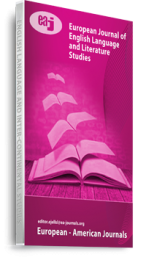The level of songs of Innocence and Experience is that of the view of human life in innocence or in experience, but this does not preclude the presence of the macrocosm or life of the world itself. If each human life contains space and time, then the microcosm contains the macrocosm. Experience is Generation and the fall, through which man can either reassert a visionary condition (Eden) or move to an acceptance of experience or “nature” as the ultimate reality. To exist in such a condition is to deny Eden and commit the mind to endless circles of natural birth and rebirth. In the natural world man’s divine human form dissolves into material substance and is regenerated without visionary consciousness. Man not only becomes what he beholds, but also becomes as he beholds.Innocence in its pure form is, for the childish consciousness, a condition of complete animation in nature best signified by a prolific garden. This garden serves along with the figure of the mother to indicate a protective world. Innocence is portrayed in poems that present these images either from within, or through the eyes of a mother figure who conceives of herself as a protector of the child. Examples of the former are “Spring” and “Laughing Song”; examples of the latter are “Cradle Song” and “A Dream”.These poems are set against certain songs of Experience which employ the symbols of nature in their fallen forms and build up the picture of a false garden (“The Garden of Love”, “The Sick Rose”). This false garden is contained within the familiar tree of the knowledge of good and evil (“The Human Abstract”) and is seen a wasteland (“The Voice of the Ancient Bard”). These are the two states seen simply in their archetypal forms.
Keywords: Songs of Experience, Songs of Innocence, William Blake's

